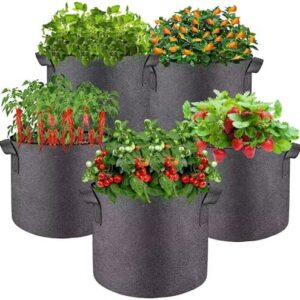Plants, those lovely green beings that bring beauty and life to our world. We see them every day, but how much do we really know about them? Plant science, or botany, is a fascinating field that uncovers the mysteries of plants and the important role they play in our ecosystem. Here are some fascinating plant science facts that you may not have known:
Did you know that plants can communicate with each other? Yes, you read that right. Plants have the ability to send signals to each other through their roots and even release chemicals into the air to warn neighboring plants of impending dangers, such as insect attacks. This phenomenon is known as plant signaling, and it is a crucial survival mechanism for plants to protect themselves and thrive in their environment.
Plants are also incredibly intelligent. They have the ability to adapt to their surroundings and respond to external stimuli in order to survive. For example, some plants have the ability to sense the presence of predators and release toxins to deter them. Other plants can change the direction of their growth in response to light or gravity, ensuring that they receive the maximum amount of sunlight for photosynthesis.
Plants are also masters of reproduction. While most of us are familiar with the process of pollination and seed dispersal, did you know that some plants are capable of cloning themselves? Certain plants, such as strawberries and spider plants, can reproduce asexually by sending out runners or producing plantlets that grow into new plants. This allows them to quickly spread and colonize new areas without the need for pollinators.
Plants are also incredibly diverse. There are over 300,000 species of plants on Earth, each with their own unique characteristics and adaptations. From the towering redwoods of California to the tiny mosses that carpet the forest floor, plants come in all shapes and sizes. Some plants, such as the Venus flytrap, have evolved unique mechanisms for capturing and digesting insects, while others, like the giant water lilies of the Amazon, have leaves that can support the weight of a small child.
Plants are also essential to our survival. They provide us with oxygen, food, medicine, and shelter, making them crucial components of our ecosystem. Without plants, life as we know it would not be possible. In addition, plants play a key role in regulating the Earth’s climate by absorbing carbon dioxide from the atmosphere and releasing oxygen through photosynthesis. They also help to prevent soil erosion, filter water, and provide habitat for countless species of animals.
Despite their importance, plants are facing numerous threats in the modern world. Deforestation, pollution, climate change, and invasive species are all putting pressure on plant populations around the globe. It is vital that we take steps to protect and preserve our plant life for future generations to enjoy.
So the next time you take a stroll through a garden or forest, take a moment to appreciate the incredible diversity and beauty of the plants around you. They may seem like simple beings, but plants are actually intricate and fascinating organisms that play a vital role in the web of life. With their ability to communicate, adapt, reproduce, and provide for us, plants truly are amazing beings that deserve our admiration and protection.






